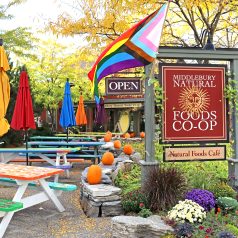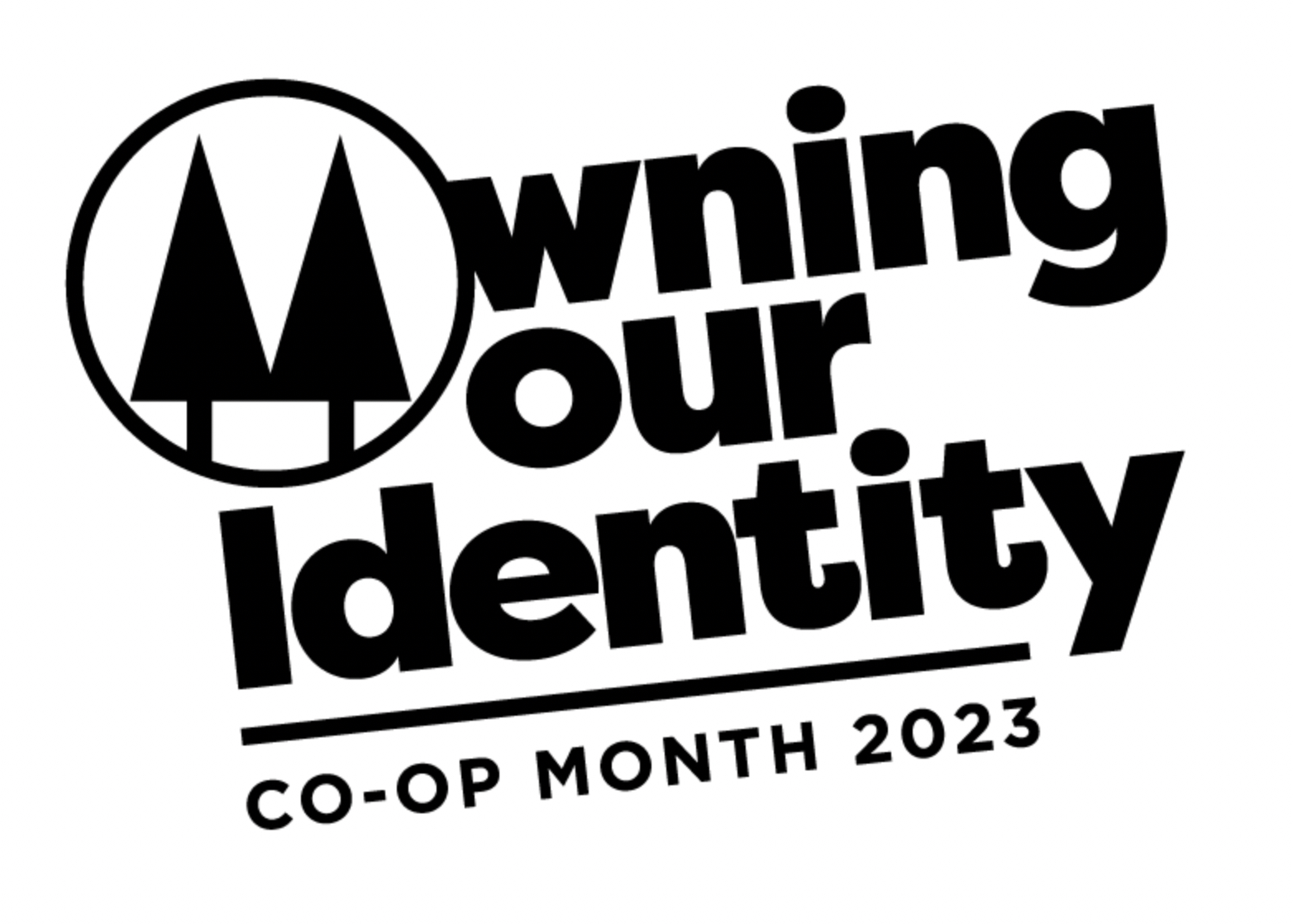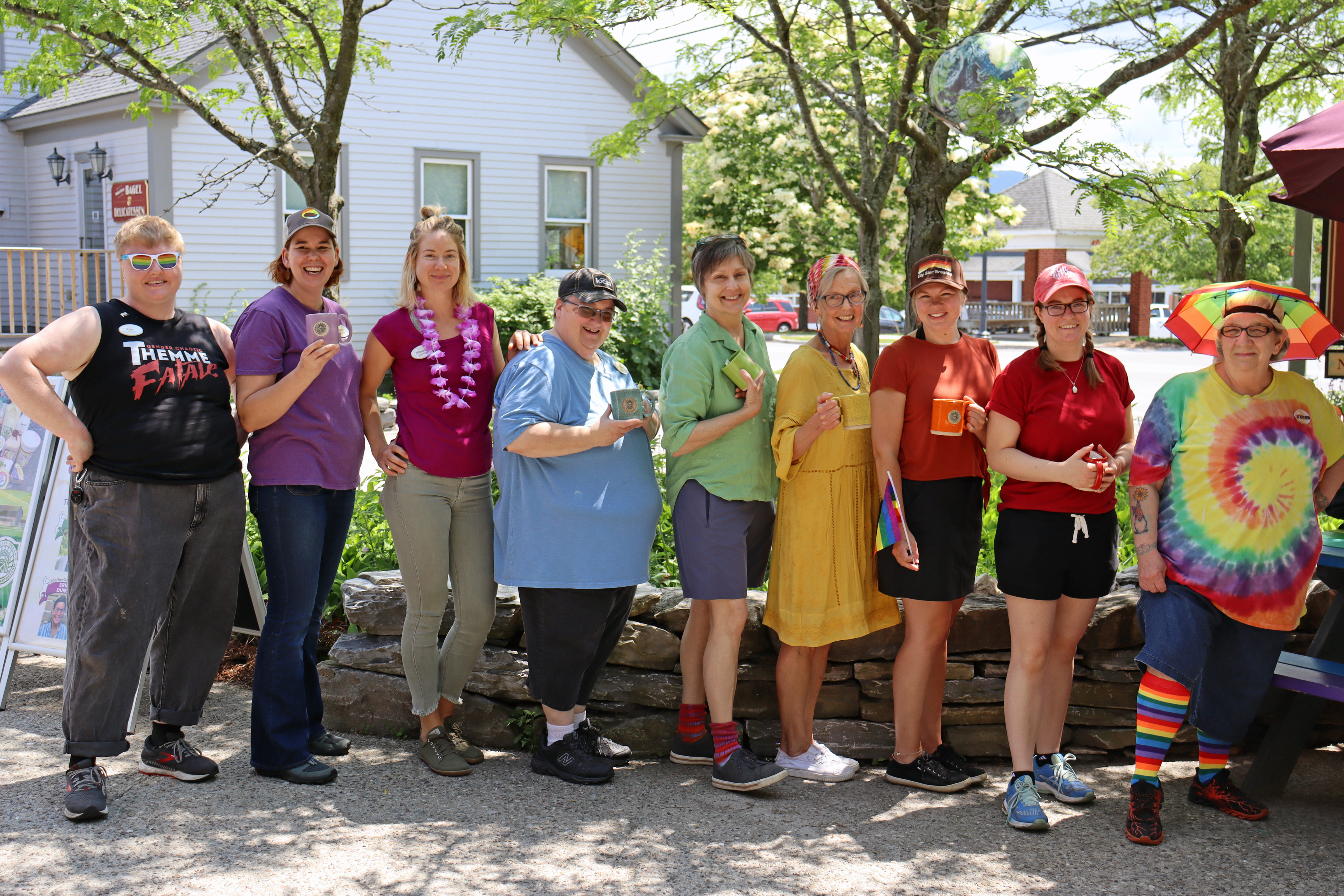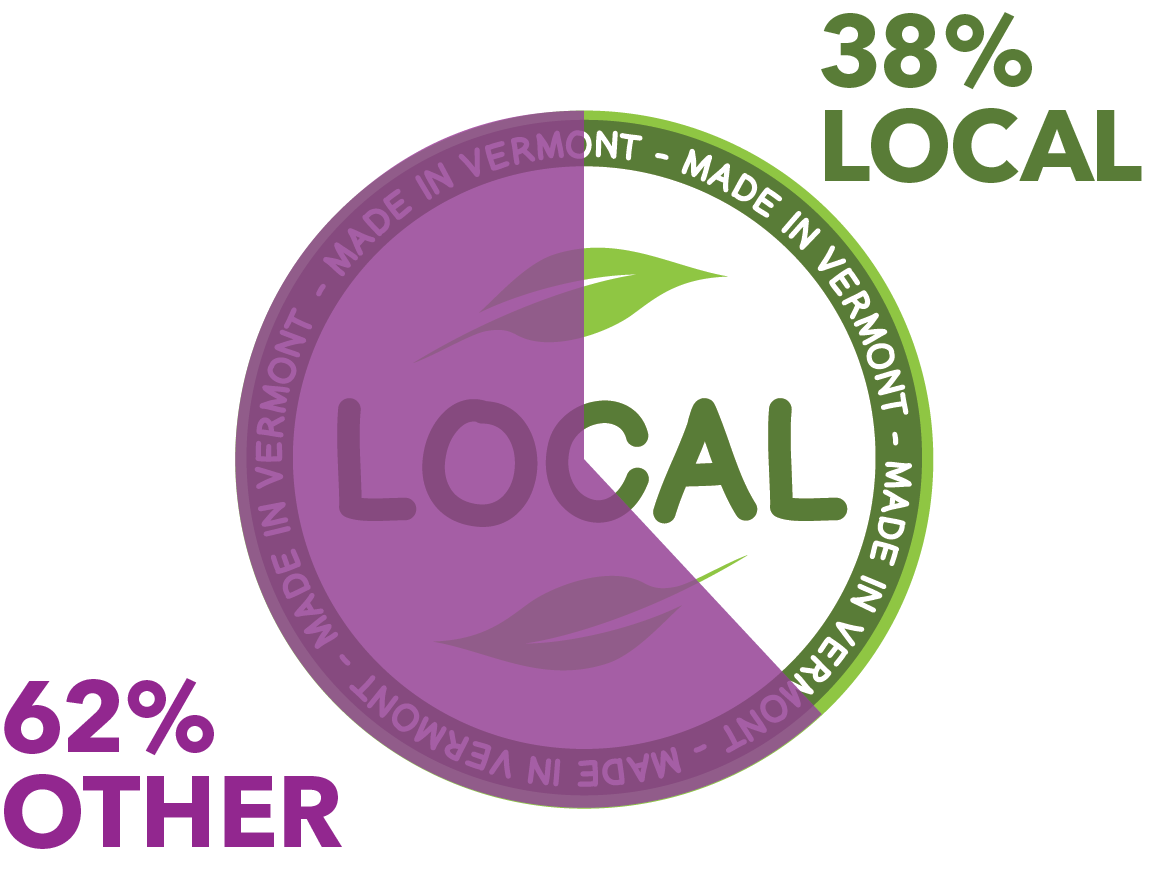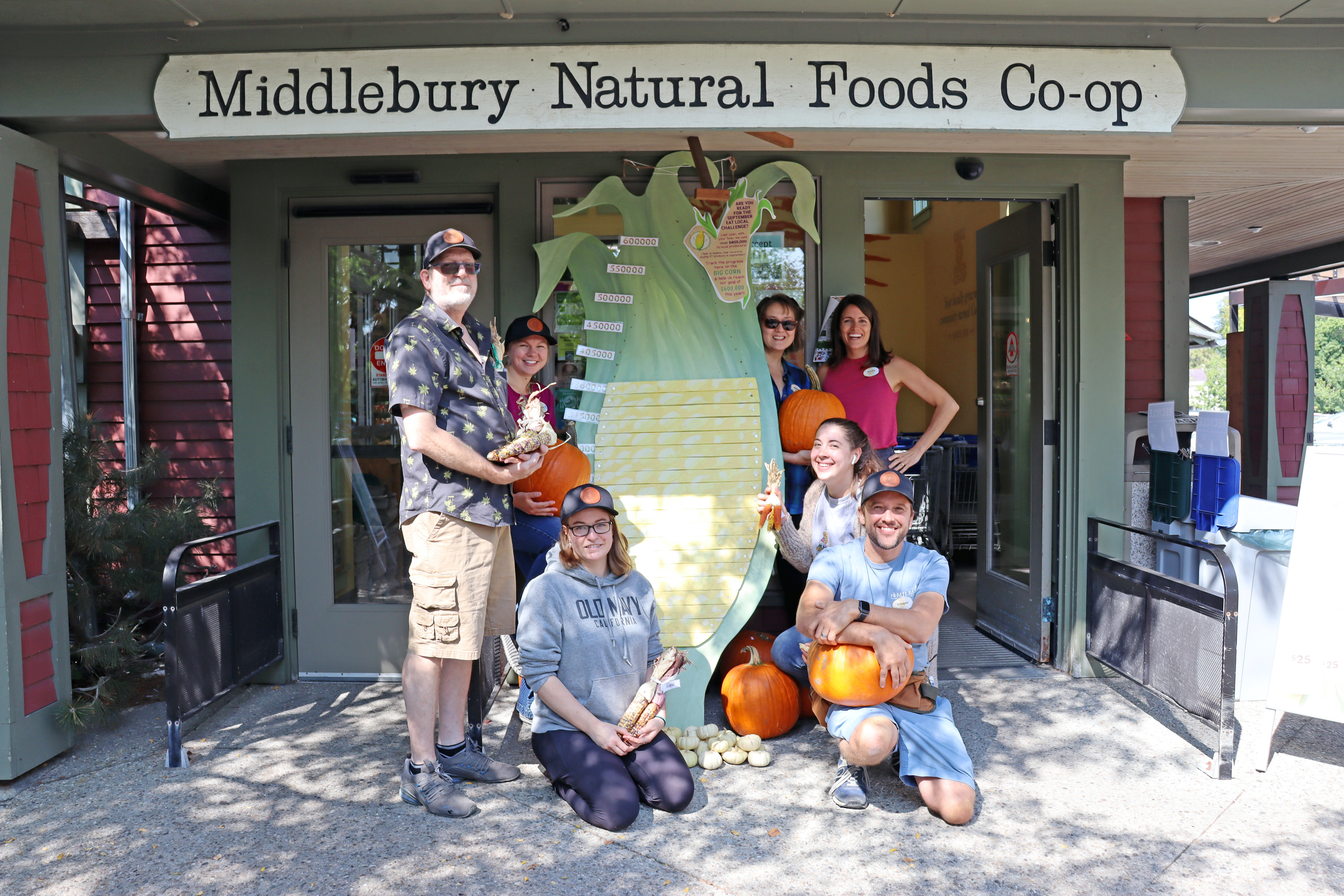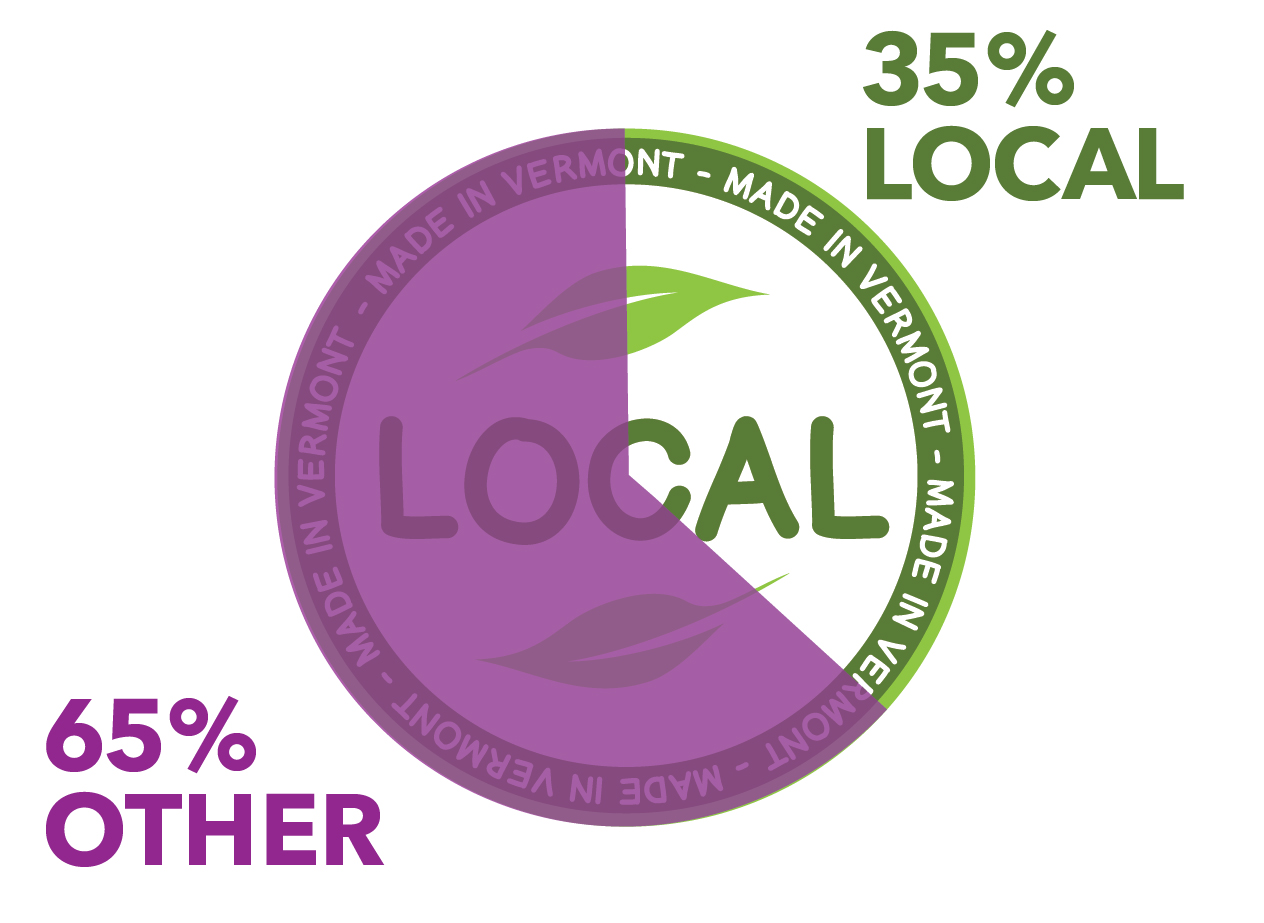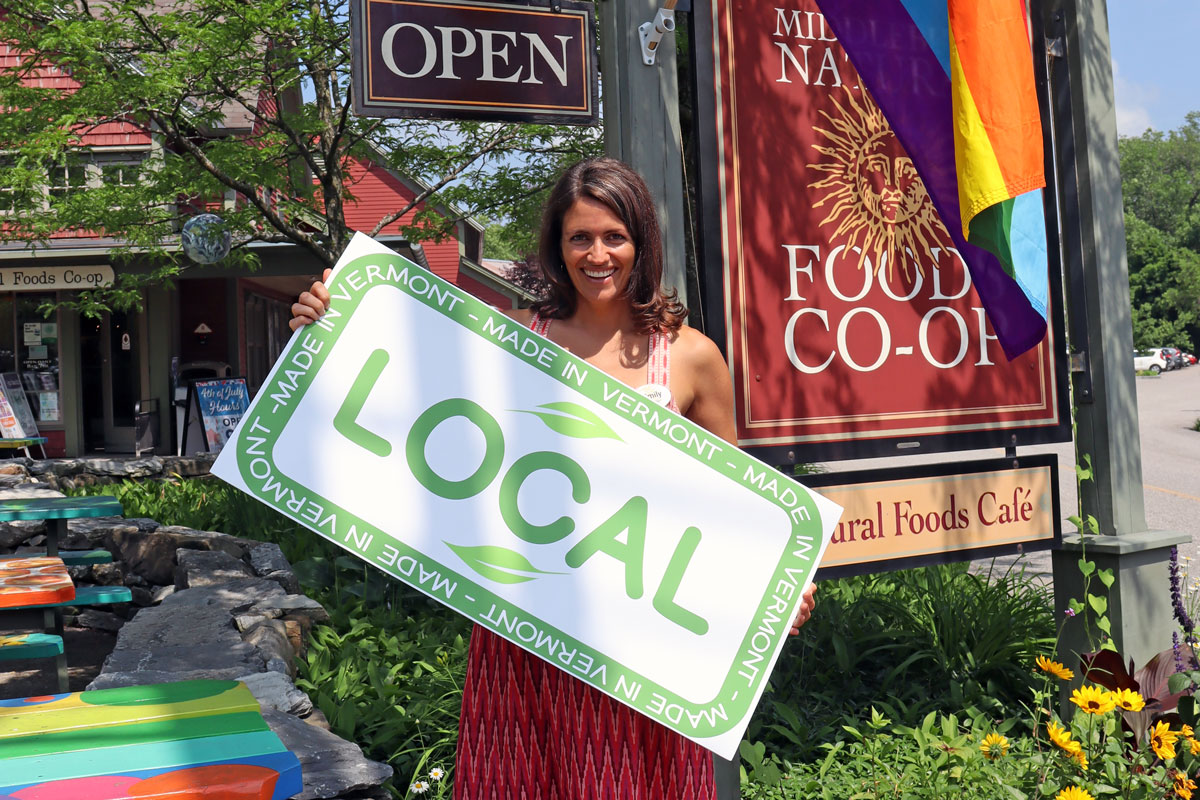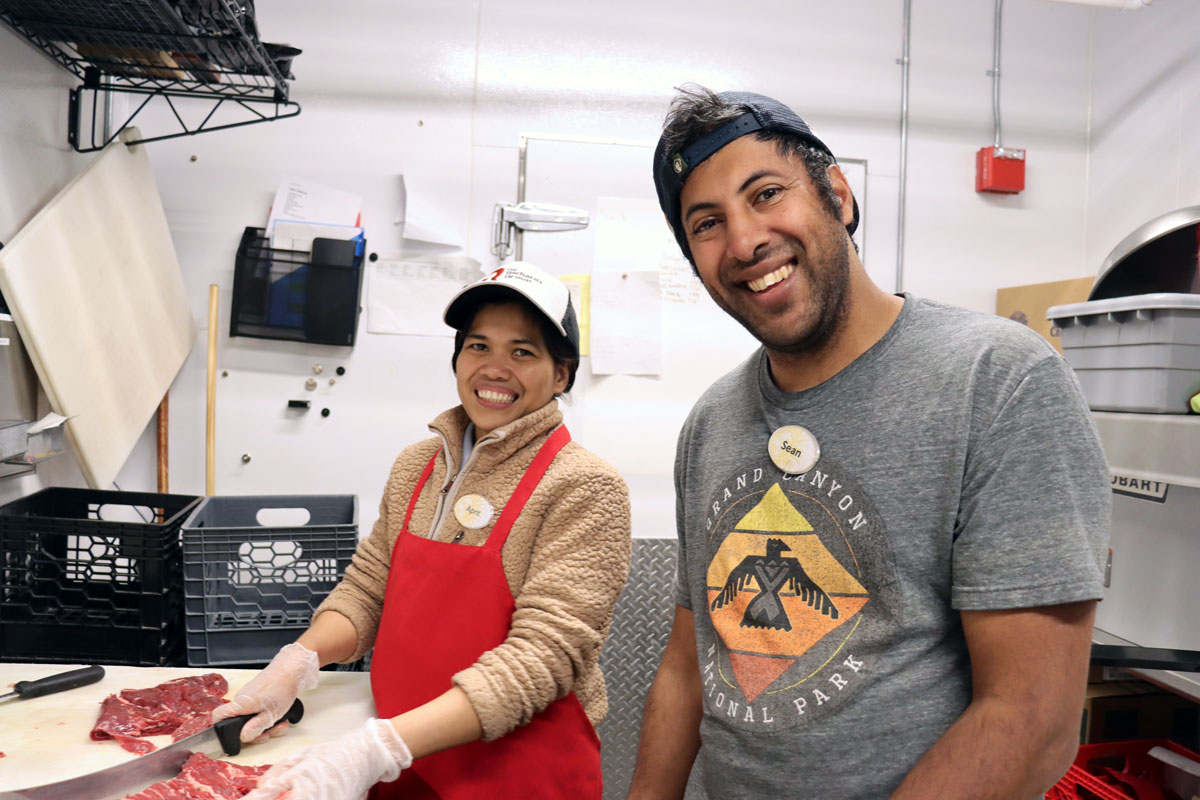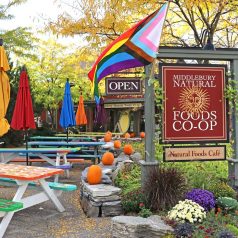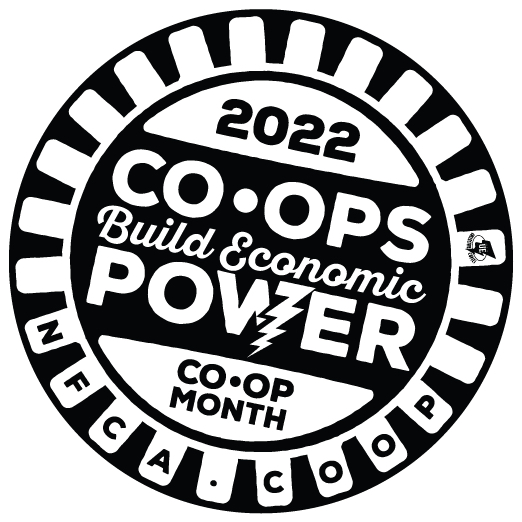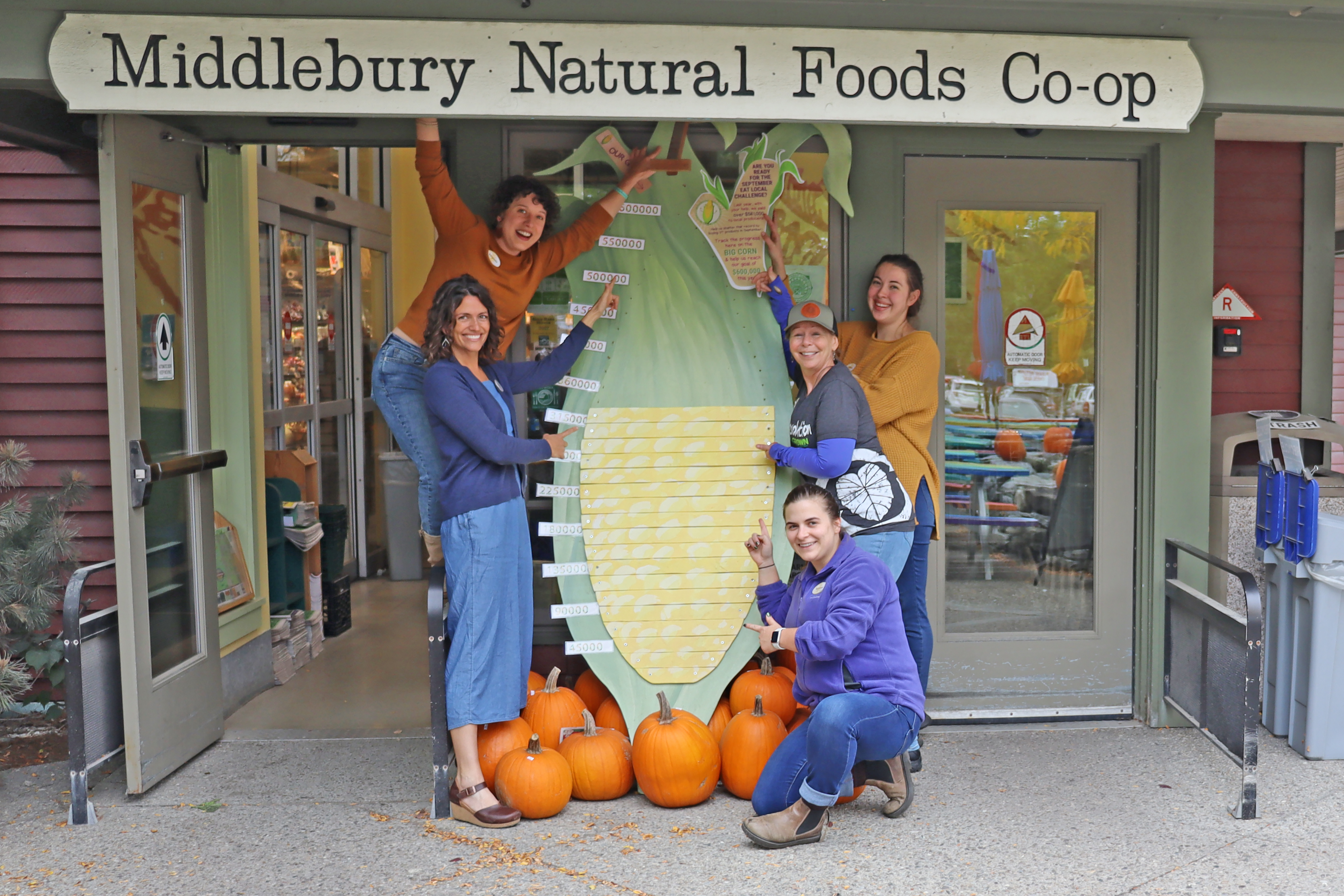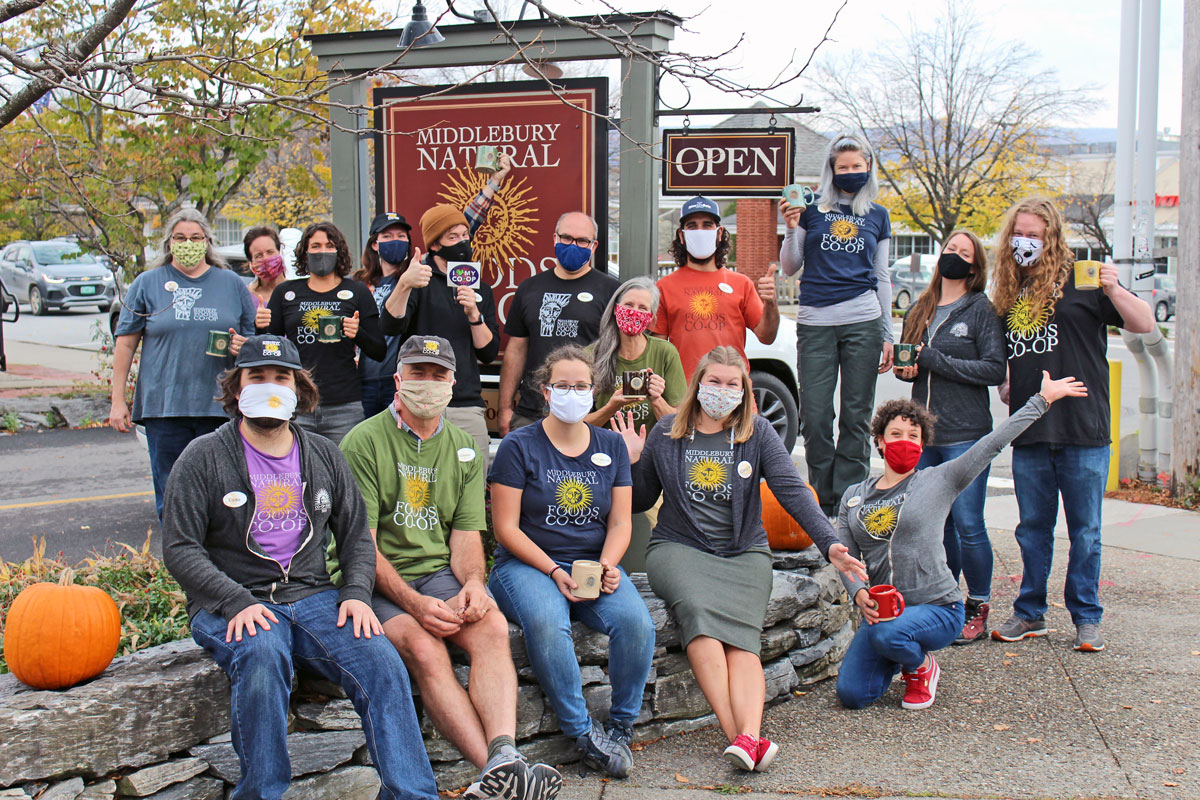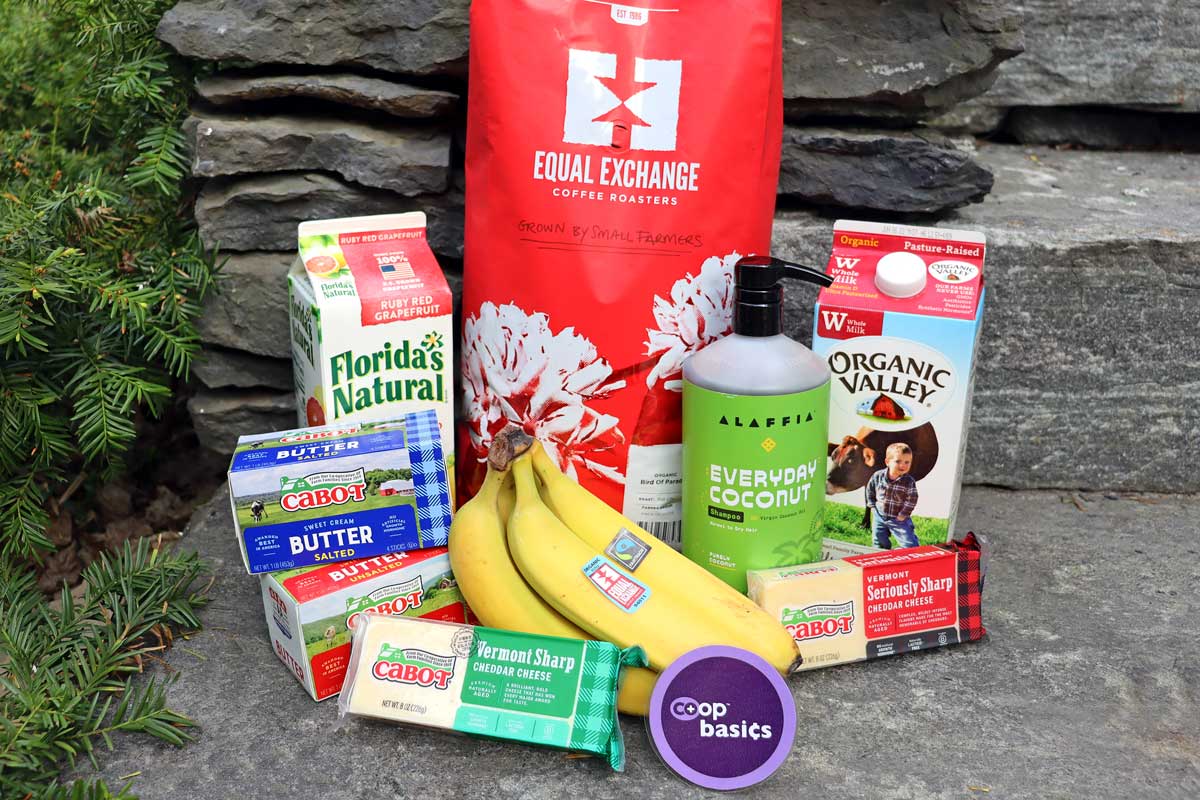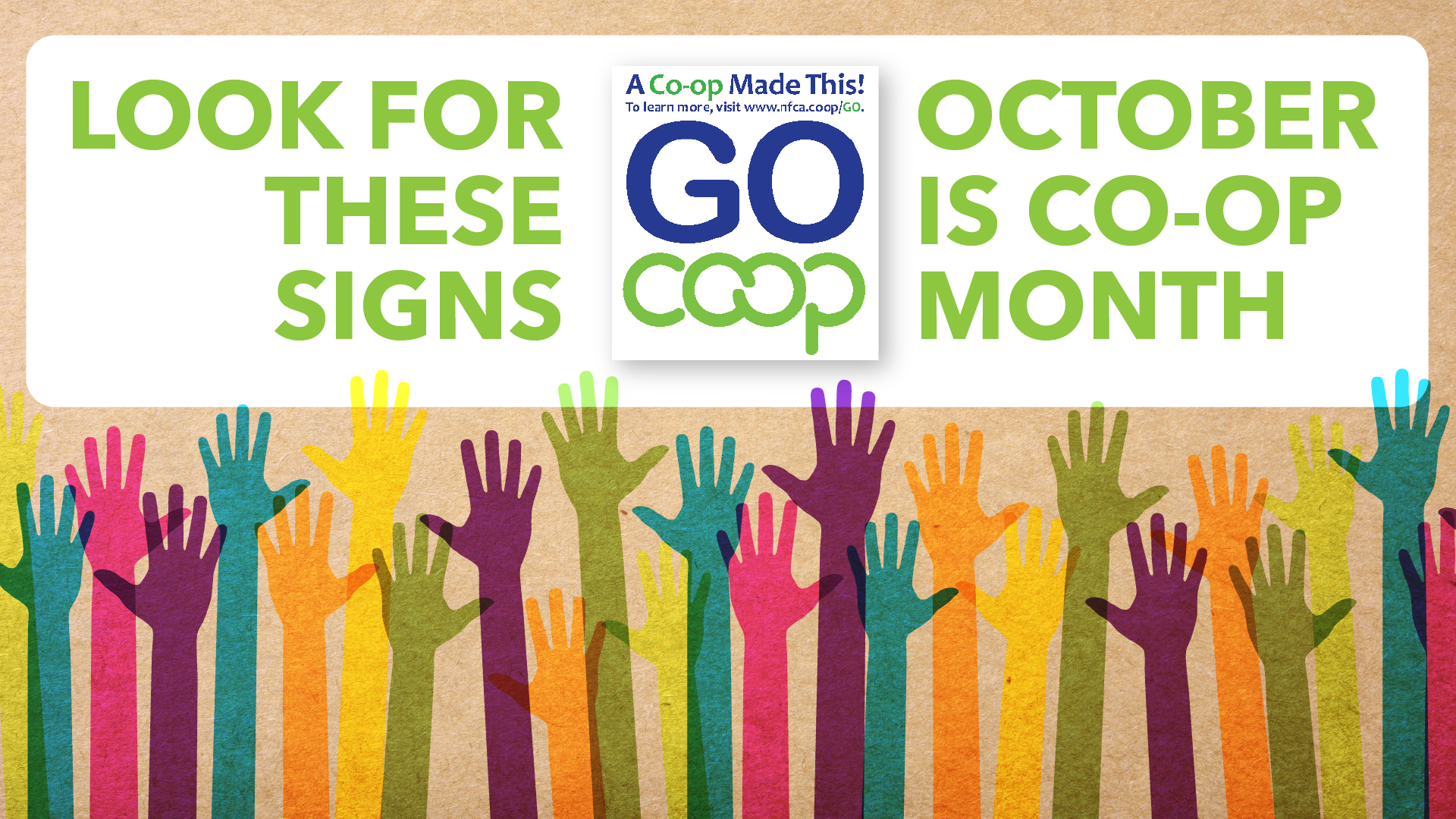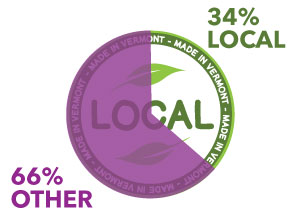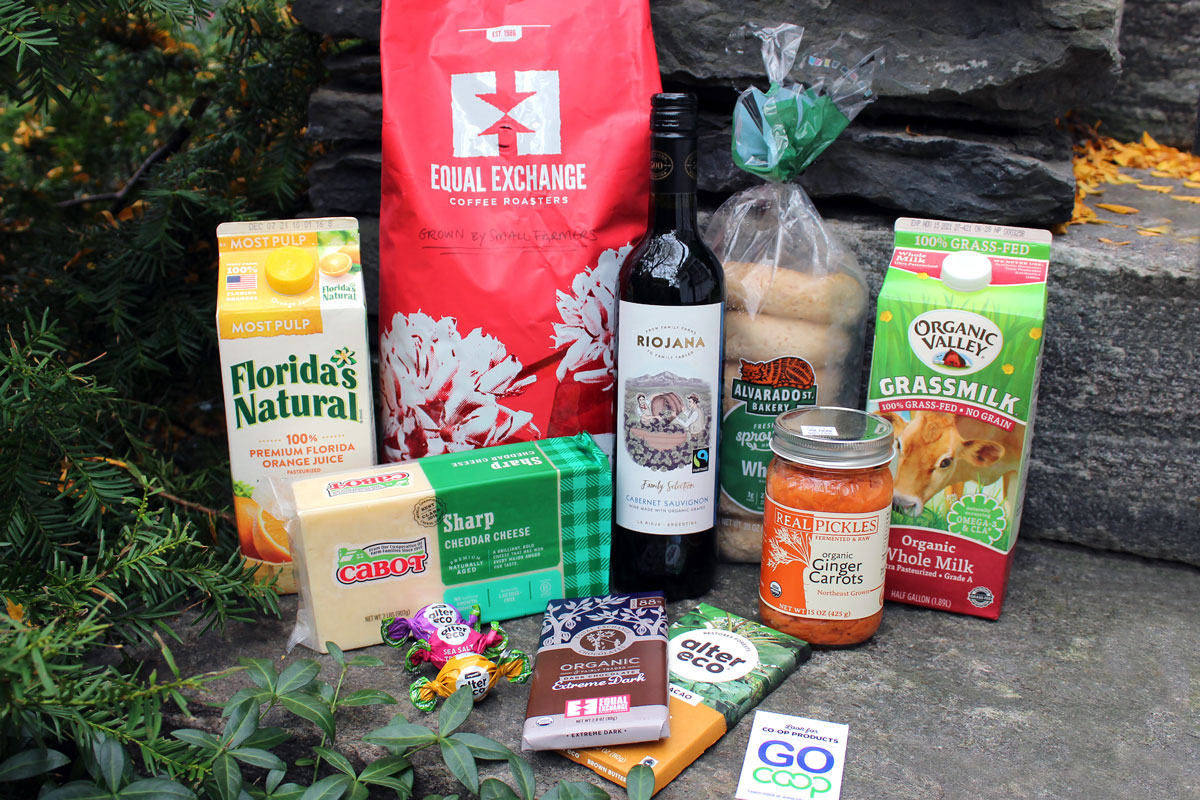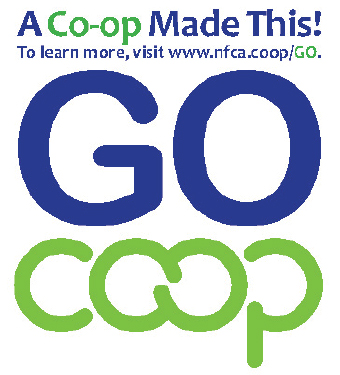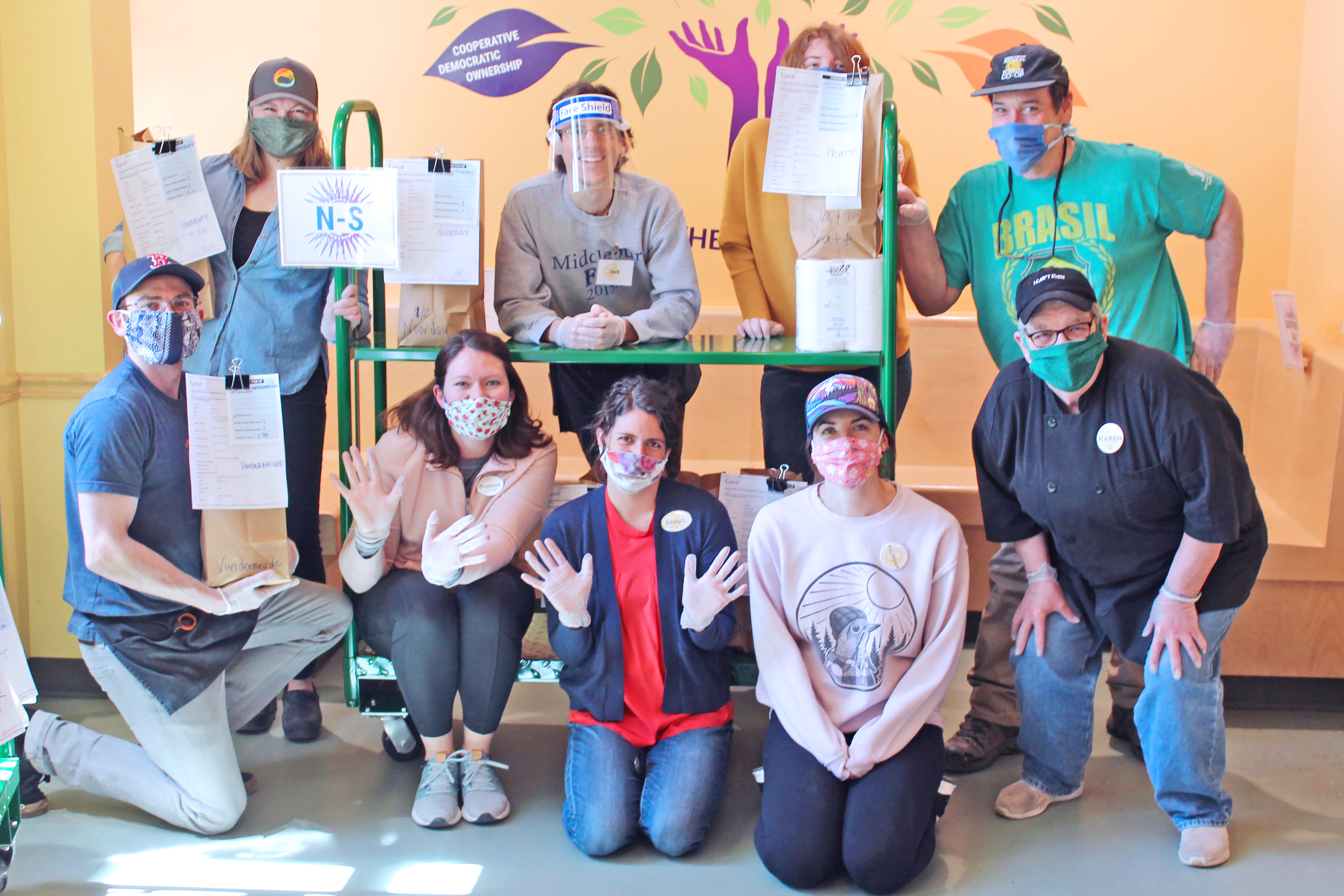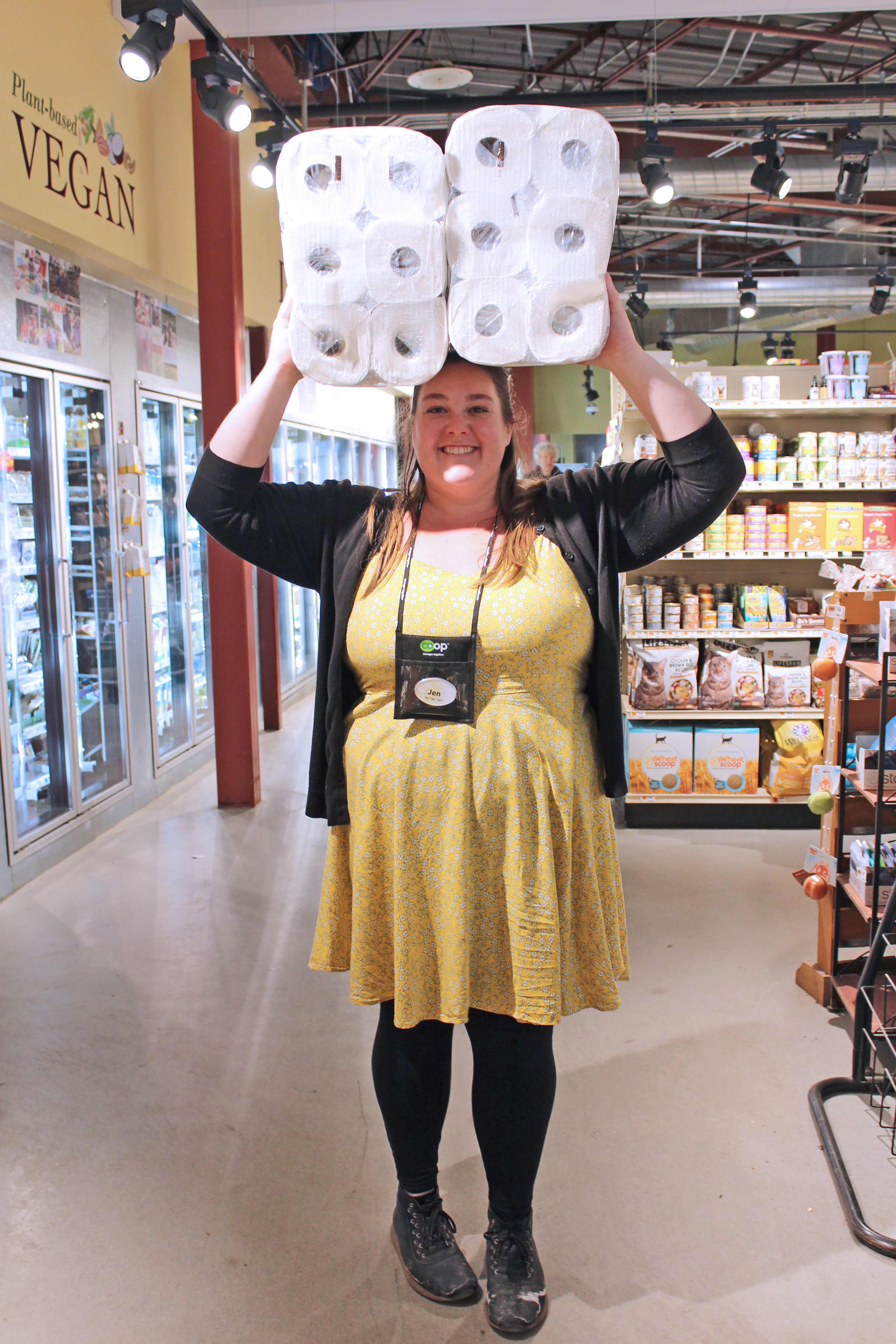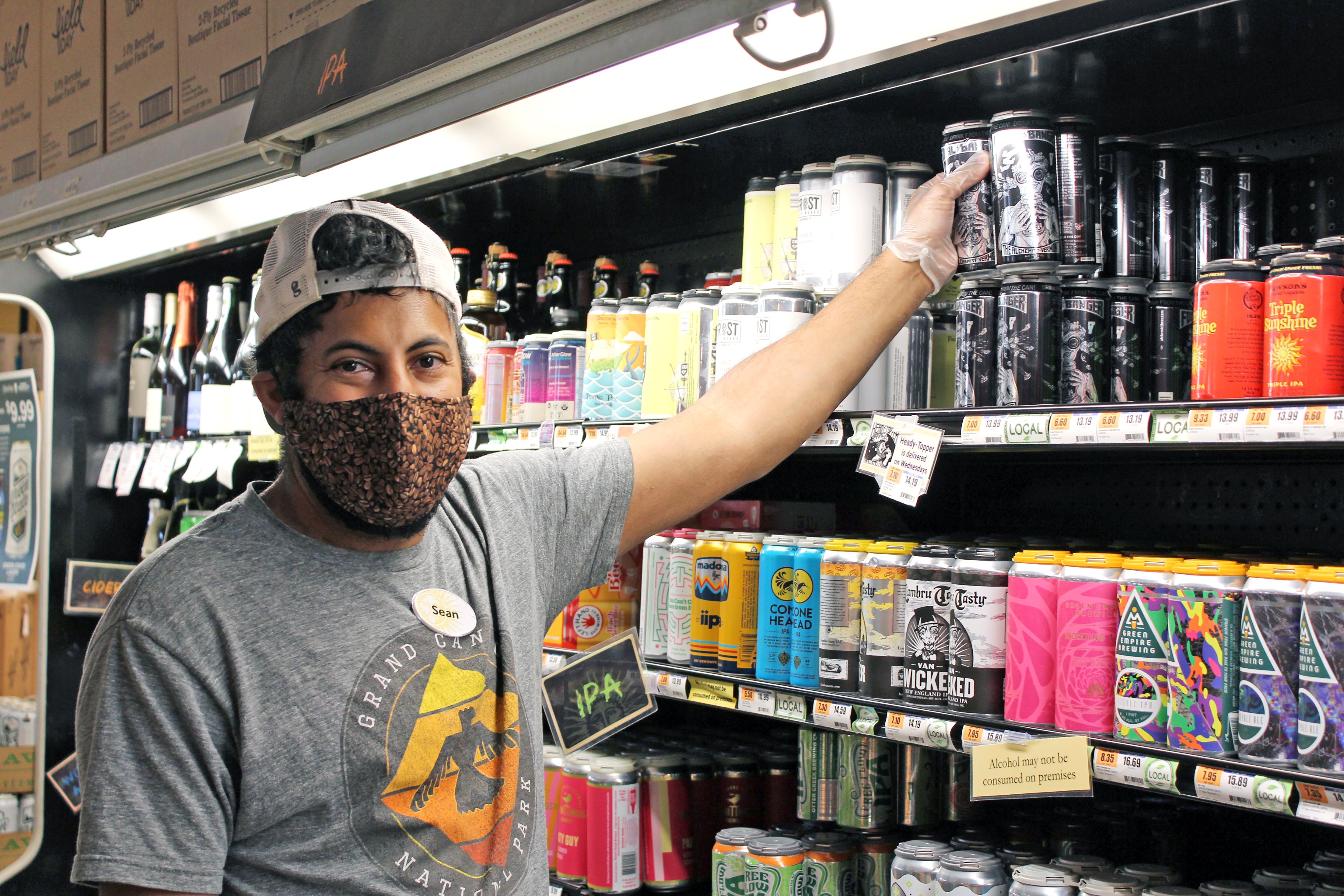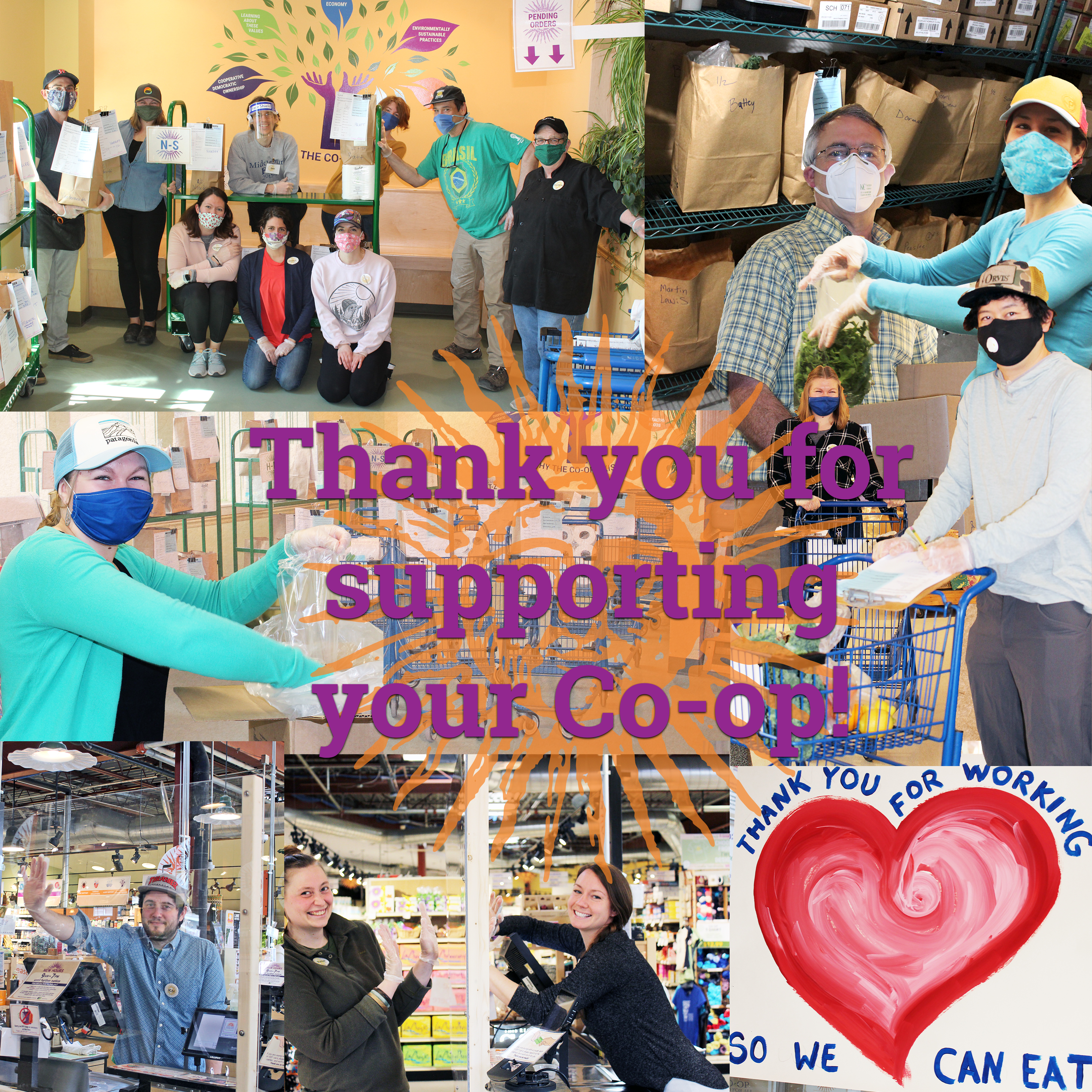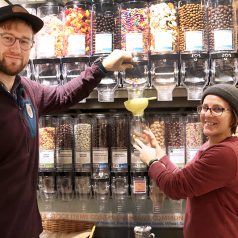
Celebrating Co-op Month!

This October, the Middlebury Natural Foods Co-op joins over 65,000 cooperatives across the country in celebrating Co-op Month. This year’s theme, The Future is Cooperative, emphasizes how co-ops across nearly every industry – from housing and insurance to food and agriculture – are shaping stronger, more inclusive communities through shared ownership and values.
The cooperative model stands apart from other business structures because it is owned by the people it serves, ensuring that our priorities reflect the needs of our community, not the demands of outside investors. While traditional businesses are focused on maximizing profits for shareholders, co-ops operate with values that emphasize community involvement, member participation, and collective responsibility, ensuring our operations benefit both our members and society as a whole. Most co-ops, including MNFC, voluntarily adopt seven core international principles to guide their mission and operations.
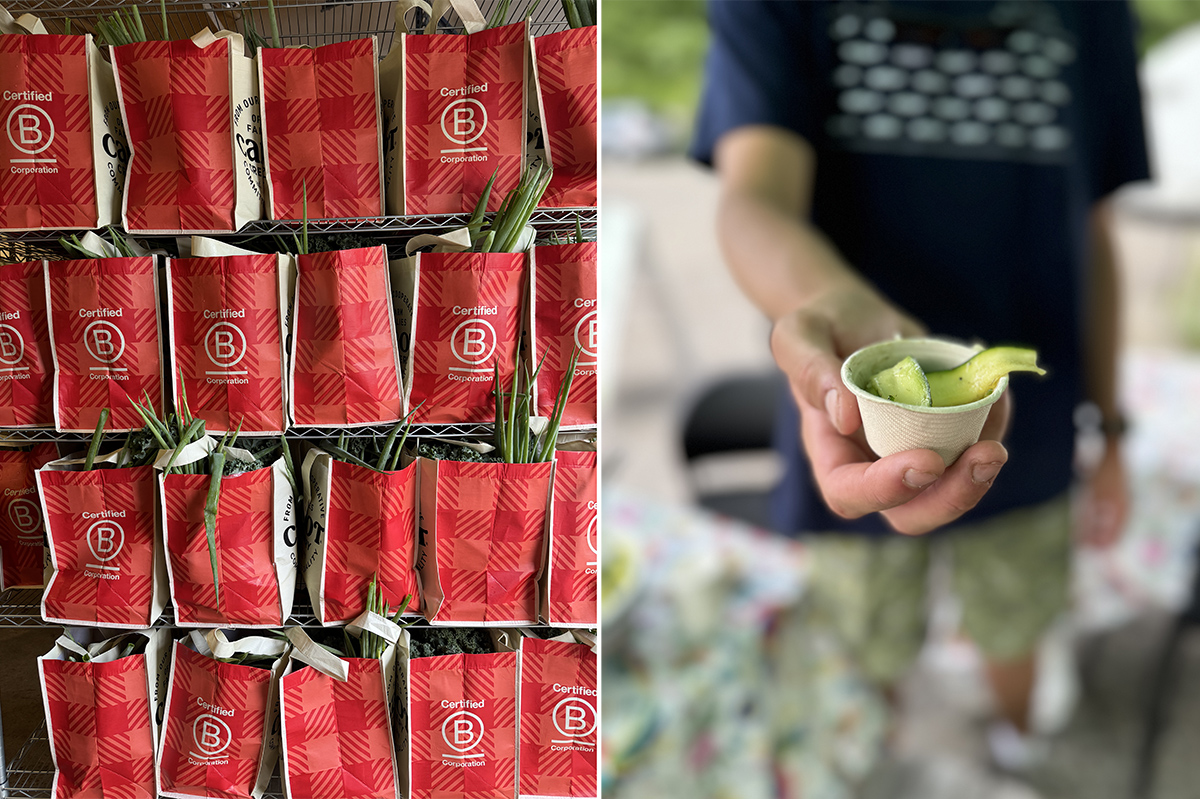
Food co-ops in particular play a vital role in local economies. According to the 2023 Food Co-op Impact Report by National Co+op Grocers (NCG), co-ops across the country generate $2.5 billion in annual sales, with 38% coming from organic products. Vermont food co-ops alone sold over $43 million in local products last year. At MNFC, local products made up 33% of our sales in 2023, down from 38% the previous year, largely due to late summer flooding that destroyed thousands of acres of local crops. MNFC honored all existing contracts with producers by purchasing as much as they could provide, even if it differed from the previously agreed-upon volume. In some cases, we paid higher costs to ensure that our local farmers received the support they needed during these difficult times.
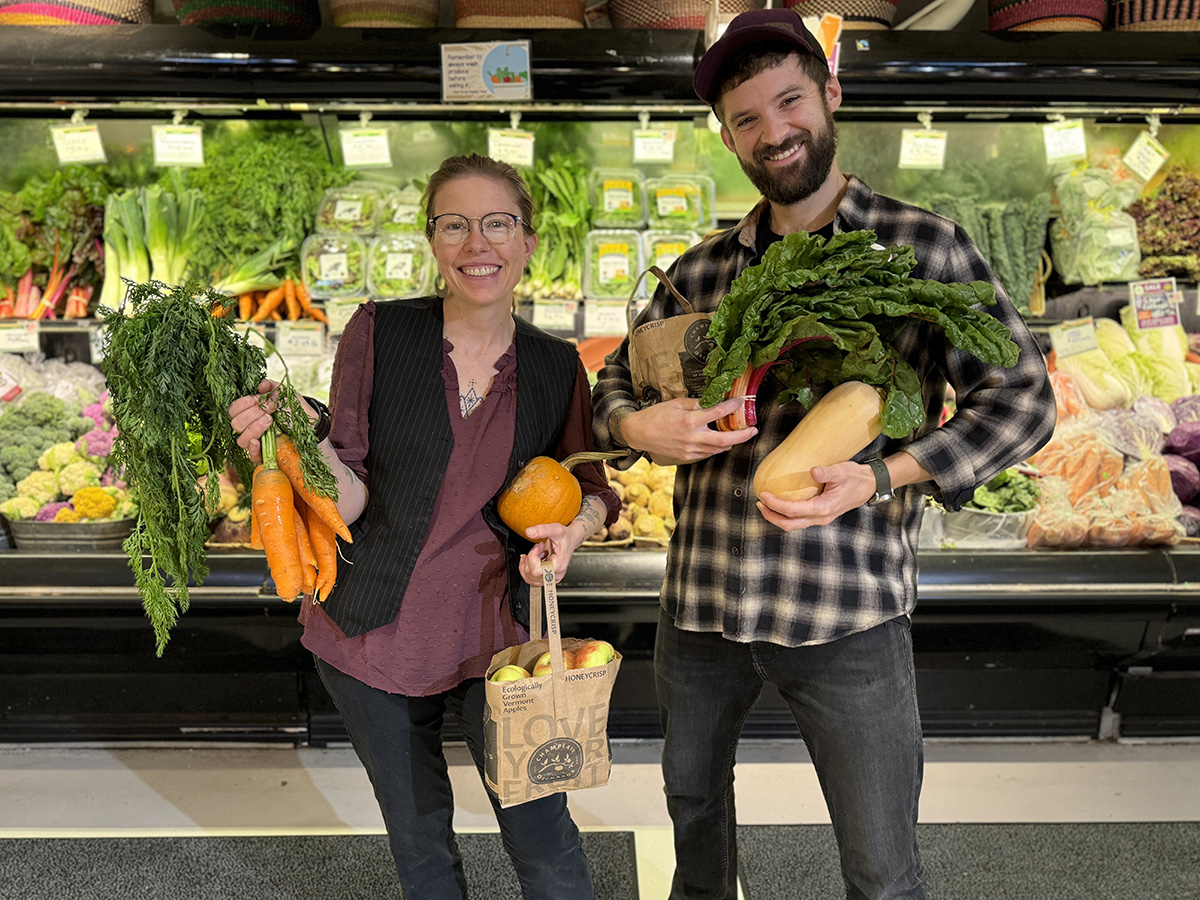
Environmental stewardship is another area where food co-ops are committed to making a difference. Simply purchasing food from local suppliers makes a huge impact, cutting down on fossil fuel consumption and pollution from long-distance food transport. At chain supermarkets, most food travels over 1,500 miles, consuming massive amounts of fuel and energy for shipping, refrigeration, and packaging. Fewer “food miles” mean fewer greenhouse gas emissions and less harm to the environment.
Spoilage is always a challenge in the food industry, and reducing food waste is of paramount importance to reducing our carbon footprint. MNFC is proud to have donated over $89,000 worth of food to local food shelves HOPE and CVOEO in FY23. This food is completely good, but may be approaching a sell-by date or have minor blemishes that disqualify it from being sold. Food unfit for human consumption is not sent to the landfill – instead it’s picked up by local farmers to feed their animals. Whatever is left—like coffee grounds and meat scraps—is collected by Casella Waste Management to be composted. These efforts not only help reduce greenhouse gas emissions from food waste in landfills but also ensure that the energy used to produce this food doesn’t go to waste. Individual departments are always thinking of new ways to improve as well, and this year our bulk department introduced the Bring a Jar, Leave a Jar program, which encourages customers to donate unwanted clean glass jars to be sanitized by our staff for re-use by other customers. Jars are free to take, and so far the program has been a very popular success!
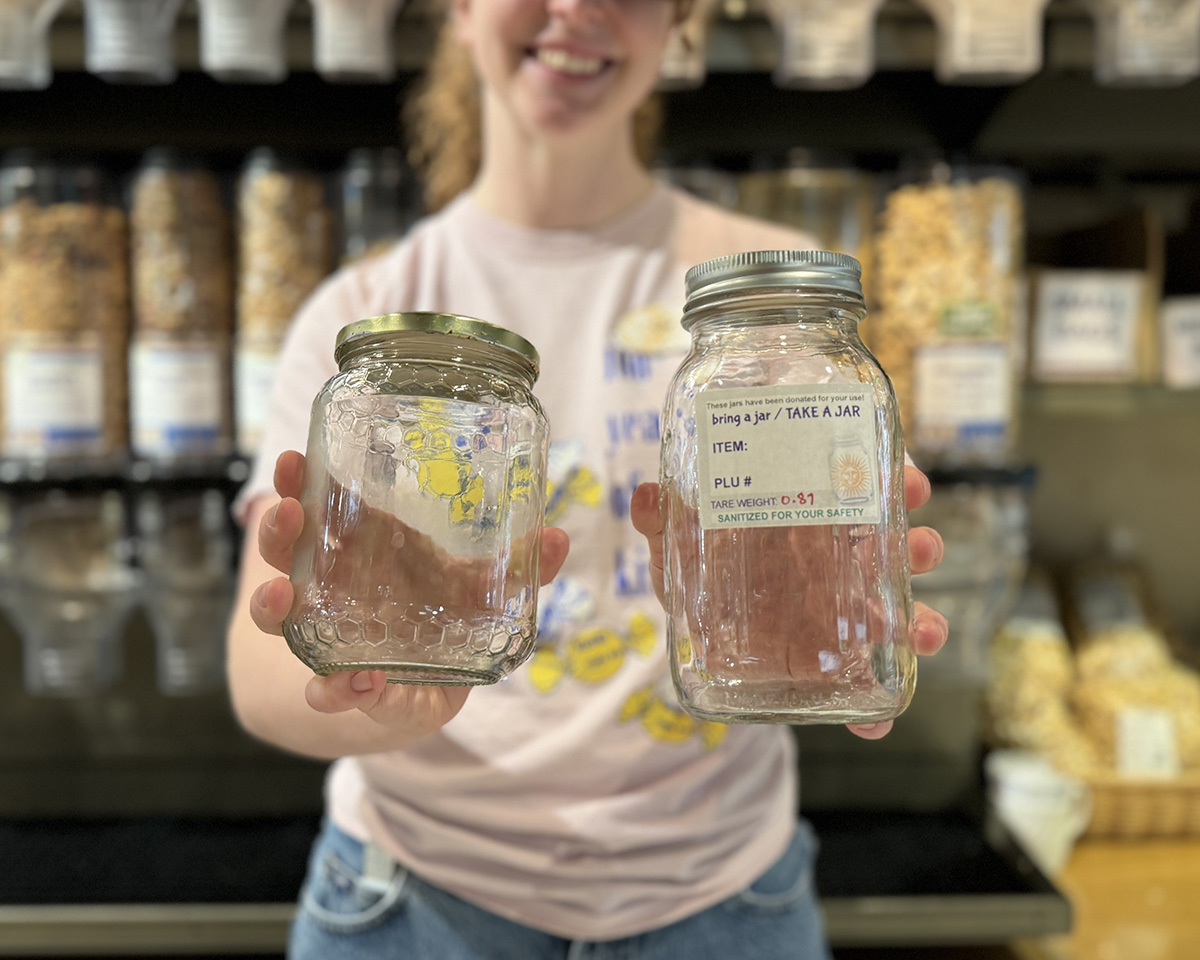
The cooperative model traces its roots to the labor struggles of the industrial revolution and has long been a tool for creating economic opportunity for marginalized communities. From Civil Rights activists to local farmers, people across industries have used co-ops to build fairer and stronger systems. Shared ownership strengthens the bond between co-ops and their communities, ensuring that decisions reflect core values like openness, social responsibility, and concern for others.
As we celebrate Co-op Month, it’s clear that the cooperative model is more than a business structure—it’s a blueprint for a more equitable and sustainable future. Whether it’s food, housing, finance, or energy, co-ops across the board are leading the way through collective ownership, social responsibility, and a commitment to sustainability, building a better tomorrow for everyone.
Throughout the month, we’ll be promoting some of our favorite Co-op-made products that are actively growing a more inclusive economy. Check out our Weekly Sale and Member Deals displays October 17-23 for deals from co-op owned companies, and be sure to clip the $3 off any co-op owned product coupon in the October 17th Addison Independent.
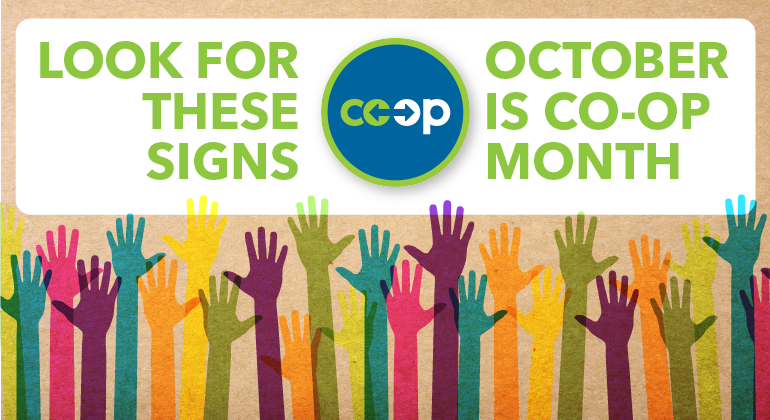
To find co-op-made products throughout the store, look for the “Co-op Trade” signs (like the blue circle above) on the shelves. You might be surprised to learn how many co-op owned companies there are! Cabot Creamery Co-op and Organic Valley, Fair Trade coffee, tea, chocolate, bananas, and avocados from Equal Exchange, La Riojana wines, orange juice from Florida’s Natural, body care products from Alaffia, naturally fermented vegetables from Real Pickles – they’re all co-ops!
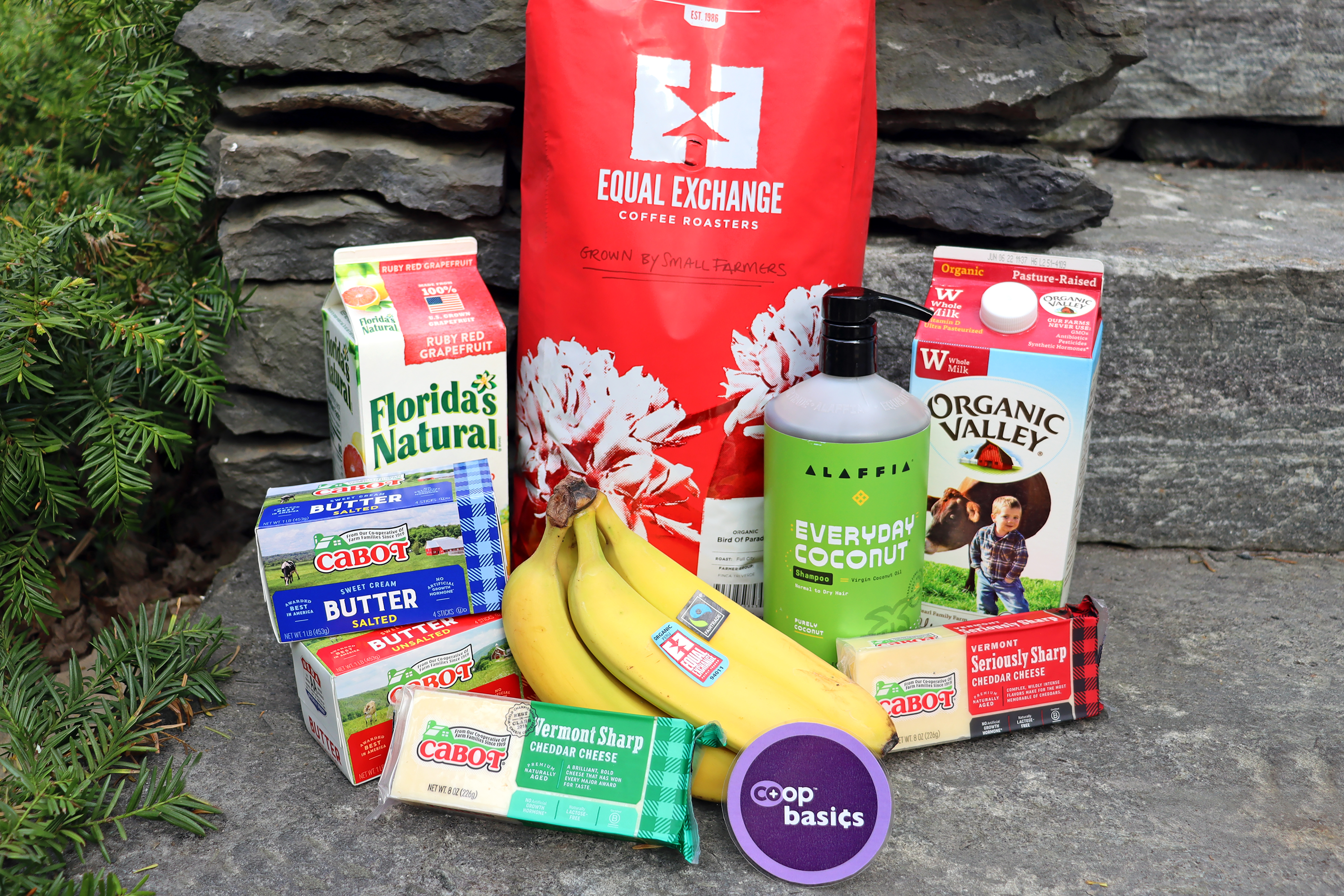
Thanks to the Neighboring Food Co-op Association (NFCA), when you join our Co-op anytime throughout the month of October, you’ll become eligible to win a two-night farm stay at Cabot Farm and Inn, or one of three Cabot ultimate gift boxes. New and existing members can enter to win this Co-op Month giveaway by clicking here.

For a deep dive into the relevance of co-operatives to the economic and social challenges we face and their contributions to a more just, equitable, and sustainable world, check out this webinar from NFCA director Erbin Crowell:

